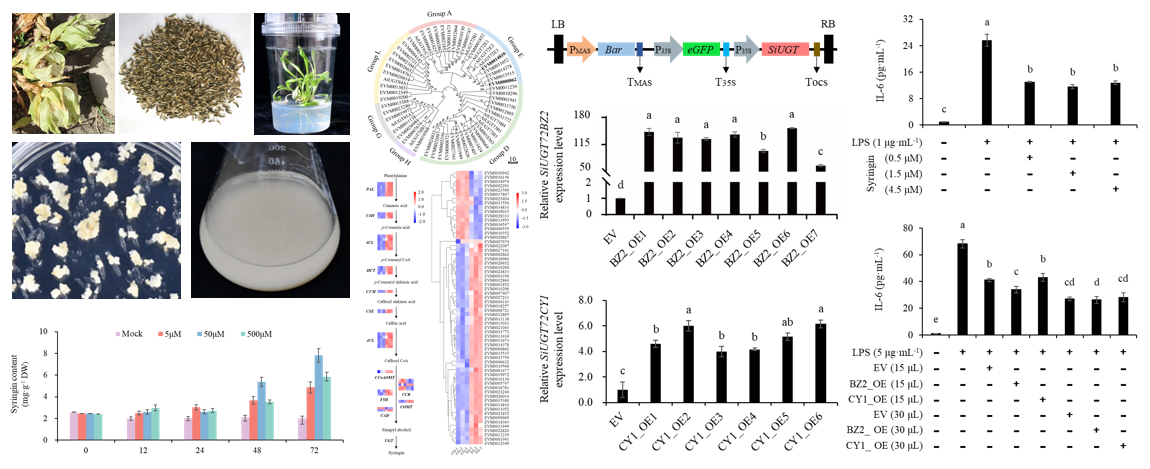Scientists Engineer Cell Cultures to Boost Anti-Inflammatory Compounds in Endangered Snow Lotus
Researchers from the Qingdao Institute of Bioenergy and Bioprocess Technology, Chinese Academy of Sciences have developed a breakthrough method to enhance the production of valuable medicinal compounds in the endangered snow lotus (Saussurea involucrata), offering a sustainable alternative to wild harvesting. The relevant research was published in Plant Biotechnology Journal on February 18.
By genetically engineering suspension cell cultures, the team achieved a 15-fold increase in syringin, a bioactive compound with potent anti-inflammatory properties, paving the way for scalable pharmaceutical and functional food applications.
Native to China’s Tianshan Mountains, the snow lotus is revered in traditional medicine for treating conditions like rheumatoid arthritis and high-altitude sickness. However, over exploitation and harsh growing conditions have driven it to near extinction. “Wild populations are critically limited, making biotechnological solutions essential,” said Dr. FU Chunxiang, corresponding author of the study.
Using methyl jasmonate (MeJA) to stimulate syringin synthesis, the team identified two glycosyltransferase genes, SiUGT72BZ2 and SiUGT72CY1, through transcriptomic analysis. Overexpressing SiUGT72BZ2 in suspension cell cultures resulted in syringin levels 15.2 times higher than controls, alongside a surprising surge in coniferin, another anti-inflammatory compound. In contrast, SiUGT72CY1 over expression only yielded a 5.9-fold increase.
When tested on LPS-induced inflammatory cells, extracts from SiUGT72BZ2-enhanced cultures suppressed interleukin-6 (IL-6) production by 10.6% more than controls at lower doses. “The synergy of syringin and coniferin likely drives this enhanced effect,” noted co-author Dr. WU Zhenying. The findings align with growing demand for plant-derived anti-inflammatory agents in drug development.
Traditional cultivation of snow lotus is notoriously challenging due to its alpine habitat. Suspension cell cultures, however, can be rapidly scaled in bioreactors. “This system decouples compound production from environmental constraints,” explained Xu Yue, a frist co-author. The team’s approach not only conserves wild populations but also ensures consistent quality for industrial use. a frist researcher
While the study focused on syringin, the researchers plan to explore broader metabolic engineering strategies to optimize other bioactive compounds. “Our next goal is to integrate this technology into commercial production pipelines,” Dr. Fu and QIN Xiaochun added.

Fig. 1. Generation of suspension cell cultures with high syringin content and analysis of anti-inflammatory activity of its extracts in Saussurea involucrata